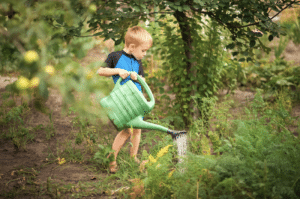
Permaculture is a term that is used in conjunction with the words “permanent” and “agriculture.” Essentially, permaculture is an interrelated system of methods for growing and keeping various plants or other organic organisms in their natural habitat. In essence, it is a farming method with an emphasis on sustainable agriculture. Permaculture also includes the use of non-natural systems, instead of synthetic inputs. permaculture definition and principles can be understood by referring to an example using both words at once.
The basic permaculture definition is that the production of food is done as naturally as possible, with as little input from man as possible. By contrast, in industrial agriculture, there is a significant amount of input by means of pesticides, fertilizers, etc. applied to the soil in order to increase the production of food. This is called “chemical engineering.”
A permaculture definition would be very similar to this: instead of increasing food production, organic farmers instead create sources of food that are sustainable, by-products of other activities. This can be in the form of crops such as lettuce or strawberries, a by-product of another activity, etc. In other words, permaculture refers to the practice of producing food in such as way that no unnatural inputs are necessary. In addition, an organic farmer will not harvest plants in such a way that the soil has been over-farmed. This is a key principle of permaculture as it reduces the use of pesticides and fertilizers, while increasing the yields from the natural soil.
The process of permaculture itself is actually quite diverse, with the primary premise being that the main aim is to produce food in a sustainable way. The key issue here is to increase food production without depleting the existing sources of food. In many ways, this is a much larger task than just planting seeds and let them grow! It is necessary to store what is being produced for future use and to ensure that the food does not fall victim to spoilage. An important part of permaculture is also waste management, which ensures that the food we eat is not contaminated in any way.
permaculture is particularly beneficial in underdeveloped countries where the economies rely on a traditional farming structure, with little investment in new technology. By creating and using crops in this way, farmers can often save more money and implement other methods such as marketing to local communities. These are all benefits that can be enjoyed not only by the local population but by the wider community. Also, permaculture is vital in providing employment to those who have no other means of getting food.
As permaculture grows, it will continue to become an integral part of society. Organic farmers who grow their own fruit, vegetables and pulses will benefit from the methods used in permaculture. There will be less need for imports, with the main export market being to the North America and Europe. Permaculture has the potential to expand its influence, both globally and locally. Its definition will continue to change as more countries begin to embrace organic farming and permaculture, giving people yet more reasons to eat organic and buy green products.


